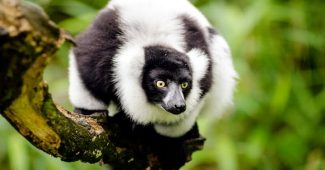Did you know which are the most intelligent animals in the world? Humans can learn from their experiences, apply their knowledge to adapt to new situations and surroundings, and remember, memorize, perceive, and solve various problems. However, some animals also possess specialized intelligence that allows them to secure their place in the food chain through their survival strategies. They have unique skills that help them navigate to find food, avoid predators, and display emotional intelligence.
Here is a list of the world’s top 10 most intelligent animals.
10Ant
Despite having a small brain, ants have a fascinating communication system and complex society. Every human on Earth is proportional to 1.5 million ants across various species. Ants evolved during the time of the dinosaurs and started farming through fungus cultivation 50 million years before humans. Their colonies span thousands of miles and are well-planned, with different sections for farming, food collection, and gathering.
Each ant colony has a unique chemical identity allows them to recognize strangers. Ants travel by following pheromones laid by scout ants responsible for finding food, and each ant will leave trails for others to follow. They have thick muscles in proportion to their body size, allowing them to carry objects 50 times greater than their weight.
9Crow
They are intelligent enough to recognize human faces and to hide their food from other birds. Crows make closer observations of the human world to find food. For example, crows know how to break nuts by dropping them on rough surfaces. Crows also use different tools like stones and pebbles to attack predators.
Top 10 Fluffiest Animals in the World
8Otters
Otters are the smallest marine mammals on Earth. They have a playful nature and live along the banks of rivers and ocean shores. Sea otters are particularly clever, using tools like rocks to find food and storing them in a little pouch under their armpits for later use. They can hold their breath for over five minutes to catch their prey, residing mainly on the sea floor.
Sea otters can also detect predators by sensing changes in the vibrations of water. The sea otter’s intelligence is visible through childish actions. To avoid floating away while sleeping, they wrap themselves and even hold each other’s hands to stay close together. Thus, they rest as a group of otters called a raft, which can consist of over 1,000 sea otters.
7Pig
Additionally, pigs are incredibly clean and keep their toilet area far away from their living space. In the wild, pigs play a crucial role in the growth of new plants by creating areas for them to thrive. They have a remarkable sense of direction and can easily locate their home from afar. As one of the most intelligent animals, they can also make decisions based on past experiences, demonstrating impressive cognitive abilities.
6Octopus
Octopuses are incredibly intelligent and perceptive creatures among invertebrates. They can sense the presence of enemies using their intellectual power and even change their body shape to avoid predators. Additionally, each of their eight arms contains its own mini-brain to act independently, allowing them to complete tasks quickly and efficiently with the supervision of a centralized control.
Octopuses are the only invertebrates that use tools and have been observed making shields over their lairs using different types of shells. They are even capable of recognizing human faces! Scientific American once reported a story about an octopus in a water tank at the University of Otago in New Zealand squirting water at a staff member whenever she passed by.
5Dog
Dogs also respond well to commands and gestures from their owners. They are smart enough to convince their owners to achieve their desires. Dogs exhibit a wide range of emotions, including joy, disgust, fear, and anger. They can even learn up to 165 words and the names of various objects, helping them to retrieve specific items when given instructions.
4Whale
Whales communicate with each other using complex vocal tones, and toothed whales use a range of whistles and high-pitched clicks that are distinct from one another. This allows them to identify who is speaking and what they are saying. Additionally, whales are highly social animals that travel and hunt in groups.
3Elephant
Researchers from the University of Sussex in Brighton, UK, have discovered that African elephants can distinguish differences in human gender, age, and ethnicity-based solely on the voice they hear. When they sense a potential threat, they quickly switch into defensive mode. Elephants are also capable of displaying a range of emotions, such as joy, playfulness, and sorrow. In the wild, they sometimes use tools to find food.
2Dolphin
Moreover, they exhibit excellent self-recognition skills in mirrors, understanding symbol-based communication systems, cultural learning, and comprehending abstract concepts. Even when resting, one part of their brain remains alert to help them detect any potential threats. Some dolphins, such as bottlenose dolphins found off the coast of Western Australia, use sea sponges to protect themselves while searching for fish in the sand on the seafloor.
Related Articles
1Great Ape
They can learn from their environment and use tools to find food and protect themselves from predators. Additionally, they have strong memory skills that allow them to manipulate their surroundings effectively. With their potential language and observation skills, apes have an exceptional ability to think about the past and future.




